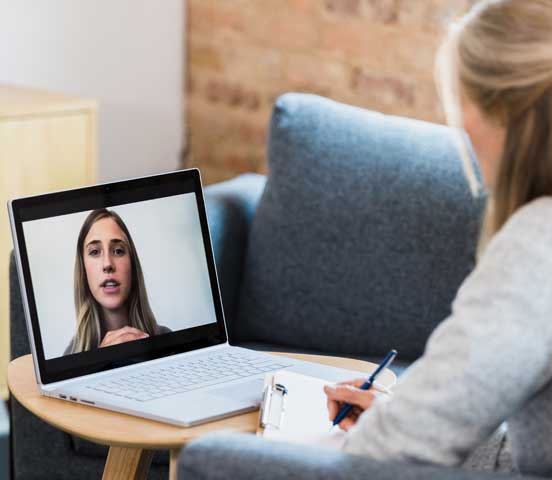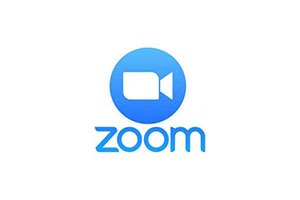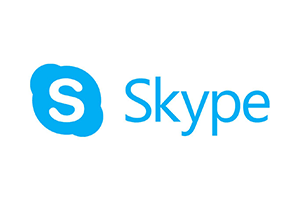Zoom Counselling
Is online zoom counselling right for you?
Online counselling is fast becoming a popular therapy option for many people across England and the world.
Online counselling can go by many terms: e-therapy, e-counselling, cyberspace counselling and tele-counselling. Many people are now turning to online counselling as an alternative to traditional counselling. While there are some disadvantages to online counselling, for many people the benefits far outweigh the drawbacks. Here I will discuss the pros and cons of online counselling, and why it might be the right solution for you.
Advantages of Zoom counselling
Accessibility & Convenience
For many people, it is simply not convenient or even possible to attend traditional counselling appointments. For those who are living in rural and remote areas of Australia and do not have ready access to therapy, online counselling may prove to be the only option. For people who do have greater access to counselling services, attending appointments may still be inconvenient and difficult to manage. It can be done from within the comfort of one’s own home, and doesn’t involve travelling, parking, finding a particular location or managing the logistics of attending appointments in person.
People who have disabilities and find travelling to appointments difficult or inconvenient will also find online counselling to be a good alternative. Likewise, people who have visual and hearing impairments would also benefit from the convenience of online counselling as it would remove the difficulties associated with travelling and attending appointments.
Last but certainly not least is that young people often feel more comfortable seeking online counselling as opposed to traditional counselling. Again, for many young people convenience is very important to using any type of service, and therefore they tend to prefer online counselling over traditional counselling.

Social Stigma
Unfortunately, there is still stigma attached to mental health and reaching out for support- although there is no doubt this is slowly but surely eroding, especially in more cosmopolitan areas of Australia. However, many people feel that reaching out to a counsellor online is preferable in this regard, as it assures more privacy for the person seeking therapy.
There is no need to sit in a waiting room with other people, for example, and therefore online counselling may feel less stigmatising for many people. To be able to stay within the comfort of one’s own home but still receive counselling negates this issue for many people.
Anonymity
The internet clearly offers a high level of anonymity which is something that may persuade some people to seek help via online counselling as opposed to traditional therapy. This level of anonymity may help some to be more honest and open in their online therapy sessions as they may perceive the relative invisibility the internet provides to be non-threatening and non-judgemental.
 Flexibility
Flexibility
For many counsellors offering online therapy services, it is possible to offer extended and out-of-hours appointments which may not be feasible in a traditional counselling setting. For example, a counsellor may be happy to provide an appointment in the early evening, followed by a break that allows the counsellor to go about their own evening commitments, and then have several appointments later that night. For those seeking a counselling service, but whose other commitments makes attending an appointment during regular business hours impractical or even impossible, being able to access out-of-hours counselling online with the counsellor of their choice is an excellent option.
Alternative Communication Options
Online counselling can take many forms: Skype, email, or chat. For the latter two options, the counselling session is, by necessity, done in writing. Writing has been shown to be a very therapeutic method of relieving distress, prompting emotional healing. Writing may also be a preferable method of communication for people who struggle to put their feelings into words or express themselves verbally. Additionally, written counselling sessions provide a record of the conversation, which can be useful for all parties to refer to.
Disadvantages of online counselling
There are, of course, several disadvantages to online counselling, which is why it may not be preferable for some people.
Absence Of Verbal and Non-Verbal Cues
Online counselling has been criticised for the absence of verbal and non-verbal cues that can be critical to communication and building a trusting relationship between counsellor and client. While this may be of some benefit in terms of creating a sense of anonymity and privacy, this can also, in certain circumstances, inhibit the counselling process. For some forms of online counselling, such as Skype sessions, this can be largely overcome. However in a chat counselling session, both counsellor and client are relying solely on written communication, which can be lead to one or both parties missing out on vital non-verbal and verbal cues that form such an important element of communication, such as tone, body language and facial expressions.
Effectiveness
There is currently no evidence to support either the effectiveness of online counselling, or the lack of effectiveness of online counselling; little research has been done on the matter. However, there is research to suggest that online counselling as a sole method of therapy can increase the risk of misdiagnosis. Therefore, it is not currently recommended that people suffering from psychosis or chronic depression use online therapy.
Technology Difficulties
We all experience technology problems from time to time when using an online service; the same can clearly happen during an online counselling session. This potential disruption can make the therapy far less effective then traditional counselling. Clearly, if the client must install new software to participate in the session, this can be another obstacle to receiving effective counselling.
In conclusion, online therapy certainly has it’s disadvantages, but so too does traditional counselling; for many people seeking therapy, it will be preferable to see the counsellor face-to-face in order to have an effective counselling session. However, for people who find that traditional counselling presents one or more obstacles, online counselling could well prove to be the better option. It is clear that online therapy is becoming more and more popular for many people, for a variety of reasons, and therefore both clients and counsellors must ensure that those demands can be met and result in effective therapy.
Effectiveness
There is currently no evidence to support either the effectiveness of online counselling, or the lack of effectiveness of online counselling; little research has been done on the matter. However, there is research to suggest that online counselling as a sole method of therapy can increase the risk of misdiagnosis. Therefore, it is not currently recommended that people suffering from psychosis or chronic depression use online therapy.
Technology Difficulties
We all experience technology problems from time to time when using an online service; the same can clearly happen during an online counselling session. This potential disruption can make the therapy far less effective then traditional counselling. Clearly, if the client must install new software to participate in the session, this can be another obstacle to receiving effective counselling.
In conclusion, online therapy certainly has it’s disadvantages, but so too does traditional counselling; for many people seeking therapy, it will be preferable to see the counsellor face-to-face in order to have an effective counselling session. However, for people who find that traditional counselling presents one or more obstacles, online counselling could well prove to be the better option. It is clear that online therapy is becoming more and more popular for many people, for a variety of reasons, and therefore both clients and counsellors must ensure that those demands can be met and result in effective therapy.
How do Zoom, Skype or Online therapy sessions work?
Essentially there is no difference in the quality and process of therapy between you and the therapist, whether face to face or online, the only change is in how the therapist meets with you.
You will agree your appointment time and day with your therapist, and they will send you an invite by email to confirm the appointment and what to do to ‘attend’ the online therapy session.








